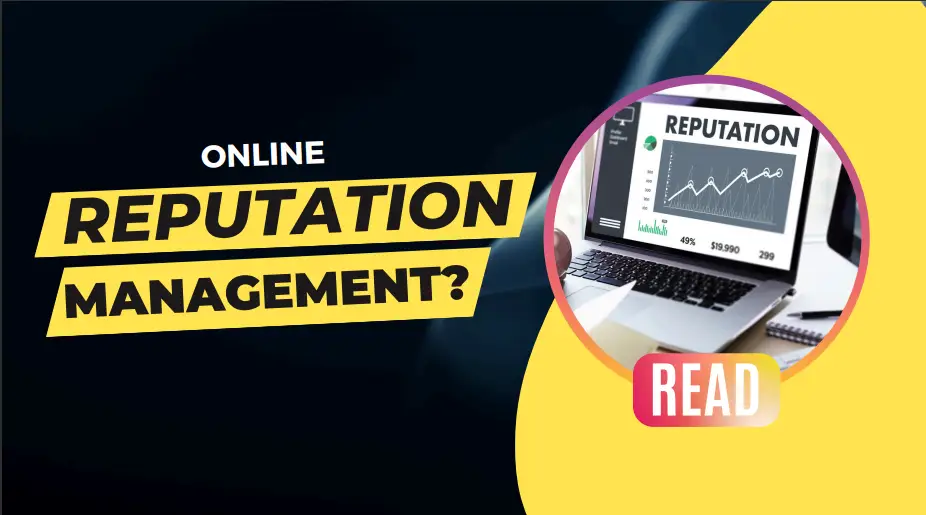In today’s digital-first world, Online Reputation Management (ORM) has become an essential practice for businesses of all sizes. Whether you’re a small business owner or the CEO of a large corporation, maintaining a positive online reputation can make or break your success. In this simple guide, we’ll explain what ORM is, why it matters, and how every business can effectively manage its online image to gain trust, attract customers, and grow.
Introduction to Online Reputation Management (ORM)
Online Reputation Management refers to the process of monitoring, influencing, and controlling the online perception of your brand. It involves tracking what people are saying about your business online and taking actions to ensure that your brand is perceived positively by your target audience.
- Definition of ORM: ORM is about managing your brand’s presence across various online platforms, including search engines, review sites, social media, and forums.
- Importance of ORM for Modern Businesses: In the age of the internet, customers often turn to online reviews, social media, and search results before making purchasing decisions. A poor online reputation can drive potential customers away, while a positive reputation can attract new business.
Why Online Reputation Matters
A company’s online reputation is one of its most valuable assets. Today’s consumers trust online reviews and opinions almost as much as personal recommendations, making your brand’s reputation a key factor in consumer decision-making.
- Impact on Consumer Trust and Brand Image: A strong online reputation builds trust and credibility, while a negative reputation can damage your brand image and drive customers to your competitors.
- Role of ORM in the Digital Age: With the rise of social media, review platforms, and instant communication, businesses no longer have complete control over how they’re perceived. ORM helps businesses stay in control of their online image by proactively managing and responding to feedback.
Components of Online Reputation Management
ORM is more than just managing your social media accounts. It involves several key components:
- Monitoring Online Presence: Keep track of mentions, reviews, and discussions about your brand across multiple channels like Google, social media platforms, and review sites.
- Managing Online Reviews: Respond to customer reviews—both positive and negative—in a professional and timely manner.
- Building Positive Public Perception: Proactively promote positive content, such as customer testimonials, case studies, and thought leadership articles.
Online Reviews and Their Impact
Online reviews play a crucial role in shaping your business’s reputation. Most consumers read reviews before making a purchase, and the feedback left by previous customers can strongly influence their decisions.
- Role of Reviews in Customer Decision-Making: Positive reviews can drive new customers to your business, while negative reviews can deter them. A high star rating on platforms like Google My Business, Yelp, or TripAdvisor can boost credibility.
- Responding to Positive and Negative Reviews: Always thank customers for positive reviews to show appreciation. For negative reviews, remain calm and professional, offer solutions, and try to resolve issues quickly to show you care about customer satisfaction.
Social Media and Online Reputation
Social media is a double-edged sword when it comes to ORM. It can help businesses engage directly with customers and build a loyal following, but it can also amplify negative feedback if not managed properly.
- Role of Social Media in Shaping Reputation: Platforms like Facebook, Instagram, and Twitter allow businesses to connect with customers on a personal level, providing real-time customer service and building brand loyalty.
- Engaging with Followers Effectively: Respond to comments, questions, and concerns in a timely and polite manner. Engaging regularly with your audience fosters a positive online reputation.
Search Engine Results and ORM
Your brand’s search engine presence plays a pivotal role in ORM. When someone searches for your business, the content that appears in the top results significantly influences how they perceive your brand.
- Importance of Search Engine Reputation: Negative articles, reviews, or comments that appear at the top of search results can harm your business. On the other hand, positive content can improve your credibility.
- SEO’s Role in ORM: Search Engine Optimization (SEO) can help push positive content higher in search results and suppress negative results. Creating and optimizing blogs, press releases, and social profiles can improve your online presence.
Tools for Monitoring Online Reputation
To effectively manage your online reputation, it’s essential to use tools that help monitor your brand across various platforms.
- Google Alerts: Set up alerts for your business name and key industry terms to get notified whenever your brand is mentioned online.
- Social Media Monitoring Tools: Tools like Hootsuite, Brandwatch, or Sprout Social help track conversations about your brand on social media.
- Reputation Management Software: Comprehensive solutions like Reputation.com, Birdeye, and ReviewTrackers can monitor reviews, feedback, and online mentions from a single dashboard.
Strategies for Managing Negative Feedback
Negative feedback is inevitable for any business. However, how you respond can make a big difference in the perception of your brand.
- Turning Negative Feedback into Positive Opportunities: Address complaints head-on, apologize when necessary, and offer solutions to rectify the issue. Use negative feedback as an opportunity to improve your product or service.
- Effective Responses to Criticism: Always remain professional and avoid getting defensive. Thank the reviewer for their feedback, acknowledge their experience, and try to move the conversation offline if necessary.
Importance of Transparency and Authenticity
In the digital world, honesty and transparency are critical to maintaining a strong reputation.
- Being Honest with Customers: Always provide clear, honest information about your products and services. Avoid misleading claims or hiding unfavorable details.
- Building Long-Term Trust through Authenticity: Share behind-the-scenes content, admit mistakes when they happen, and genuinely engage with your audience. Authenticity builds long-term trust and loyalty.
Proactive Reputation Building
Rather than just reacting to feedback, businesses should take a proactive approach to building and maintaining their online reputation.
- Creating Positive Content: Regularly publish blog posts, case studies, and press releases to create a steady stream of positive content about your business.
- Leveraging Testimonials and Case Studies: Encourage satisfied customers to share testimonials and use them in your marketing materials. Case studies showcase your business’s success and demonstrate your expertise.
Reputation Crisis Management
Even with the best ORM strategy, crises can happen. A reputation crisis might arise from a product failure, PR incident, or viral negative review.
- How to Handle an Online Reputation Crisis: Act quickly and decisively. Issue a public apology if necessary, offer compensation where appropriate, and clearly communicate how you plan to prevent the issue from recurring.
- Preventing Future Crises: Regularly monitor your reputation and engage with your audience to catch potential problems early. Build a solid ORM strategy to help you manage crises effectively.
Legal Considerations in ORM
Businesses may face false claims, defamation, or fake reviews that harm their reputation. Understanding the legal aspects of ORM can help you protect your business.
- Dealing with Defamation or False Reviews: If your business is unfairly targeted, consider legal recourse. Reach out to review platforms to have false reviews removed and consult legal professionals if necessary.
- Understanding the Legal Aspects of Online Reputation Management: Be aware of laws governing defamation, privacy, and intellectual property to avoid legal complications when managing your reputation.
ORM for Small Businesses vs. Large Enterprises
The scale and complexity of ORM strategies differ between small businesses and large enterprises.
- Tailoring ORM Strategies for Different Business Sizes: Small businesses often rely on local reviews and personal relationships with customers, while large corporations may need to manage reputations across multiple regions and languages.
- Common ORM Challenges for Small Businesses: Limited resources and time can make ORM a challenge for small businesses, but simple strategies like monitoring reviews and engaging on social media can have a big impact.
Benefits of Effective ORM
A well-managed online reputation offers several benefits for businesses:
- Increased Customer Loyalty: Customers trust businesses that have positive reviews and interact openly with their audience.
- Higher Revenue and Brand Value: A positive reputation helps attract more customers, leading to increased sales and higher brand equity.
Conclusion: The Future of Online Reputation Management
In 2024 and beyond, online reputation management will continue to play a critical role in business success. With the growth of social media, online reviews, and customer feedback platforms, ORM will evolve, becoming more automated and integrated with AI technologies. However, the core principles—listening to your audience, responding proactively, and staying authentic—will remain essential for businesses of all sizes.




